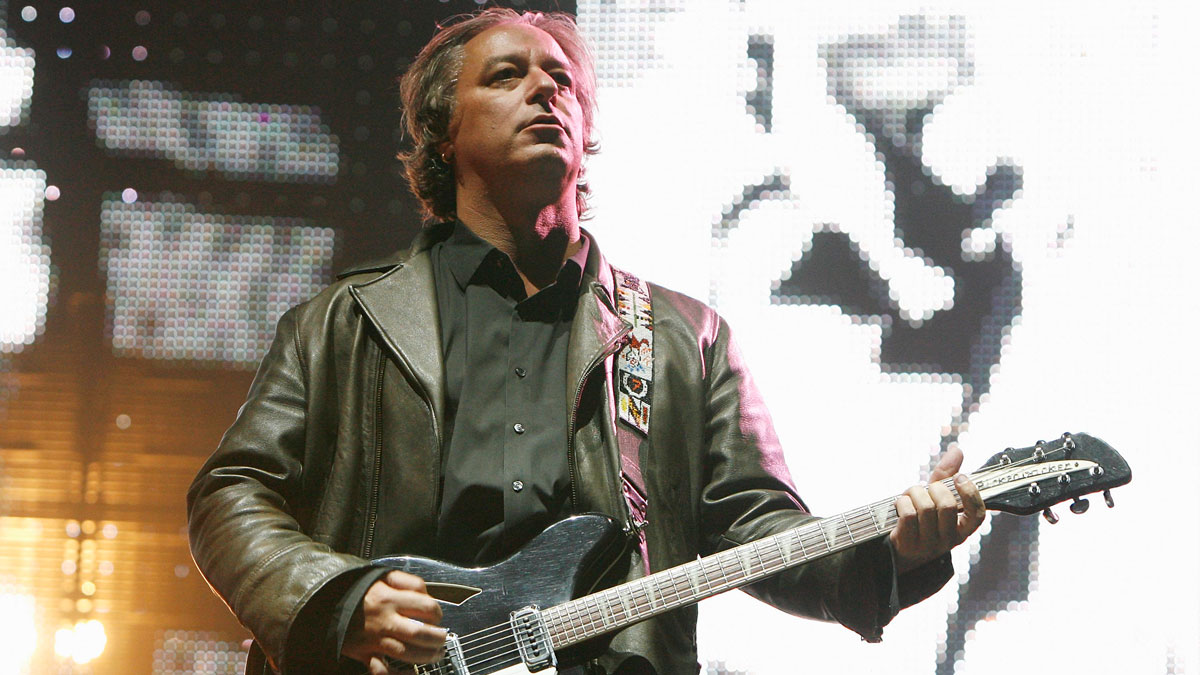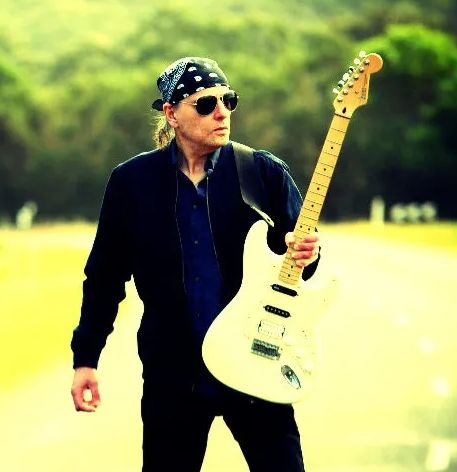R.E.M.’s Peter Buck: “My first gig was horrible. The only thing I can remember is playing the Batman theme, and I’m not sure we even played the third chord”
The alt-rock icon talks the perils of touring without guitar tuners, sculpting bridges instead of solos and why writing songs is the best way to get better

In this wide-ranging conversation, the R.E.M. guitarist looks back at his early years with the instrument, spanning his first gigs and early tours to embarrassing onstage moments and his approach to guitar solos.
First, let’s take it back to where it all began…
Who or what inspired you to pick up the guitar?
“Everyone from my generation says the same thing – the Beatles. I was around six when I saw them on TV for the first time. At that moment, I realized that was what I wanted to do with my life.”
What was your first guitar?
“I was about 13 or 14 when I got it. It was a $17 Kay that was fire engine red, and it came with an amp. It wasn’t a great guitar. My first real guitar was a late-’60s Epiphone, which I got a year later. The neck was straight, the sound was decent and it was the first time when I played guitar and I could tell what it sounded like – as in, I’d play chords and it sounded like the chords I heard on a record!”
What was the first song you learned to play?
Get The Pick Newsletter
All the latest guitar news, interviews, lessons, reviews, deals and more, direct to your inbox!
“All those three-chord songs; I was pretty good at figuring those out. But the Chicago song 25 or 6 to 4 – which is basically the [the Ventures’] Walk, Don’t Run chords – I remember playing that and going, 'Oh man, I’m playing that song!' That was the first non-three-chord song I ever learned.
“When I wanted to be a songwriter, I got myself a Beatles songbook, went through it and figured out the chords and voicings – how to use 7ths, how to change keys. That was a huge step up for me.”
Do you remember your first gig?
“It was horrible. The only thing I can remember about it is playing the Batman theme, and I’m not even sure we played the third chord. I think we just played the A and the D.”
Ever had an embarrassing moment on stage?
“They’re all embarrassing! You have to work so hard to get up there, and you really have to gear yourself up. Then, if something takes you out of it, it’s usually equipment failures.
“We [R.E.M.] toured for four years without a guitar tech; I didn’t even have extra guitars, so if I broke a string, I had to sit there and change it in front of however many people were there. We didn’t have tuners, either, so you’re humming away to try and figure out what the note is. I also didn’t have clippers – so it was just a pain. My amps were breaking up all the time and I couldn’t fix an amp to save my life.”
What’s your favorite piece of gear?
“The Jetglo Rickenbacker 360 I bought in 1981; it’s the guitar I’ve used on every record I’ve ever made. I have a bunch of other guitars that I use in the studio and live, but [the Rick] is my favorite, and it’s the guitar I’ve used my entire adult life.”
You tend to “play for the song” – with a rhythmic ability that sounds like two guitarists – instead of being a conventional lead guitarist. Have you ever had the desire to play solos?
“As a songwriter, my job is to lay out the chord changes. I want to come up with a great riff and tie it in with the song. I usually write bridges as I’m not much of a soloist. I’d rather write a bridge or a piece that is a guitar line.
“When R.E.M. started with Mike [Mills] on bass, even though he’s the best bass player on earth, you can’t really count on him to hit the root note on the one. It’s just not going to happen. So I had to find a way to fill some of the low-end – and then the melodies on the high-end – and I kind of learned how to [flatpick and fingerpick], so I could get a lot of sounds just by playing chords and walk-ups, just trying to fill the space.”
What advice would you offer young guitarists?
“Write songs, because that’s the best way to get better. Listen to great music and try to write songs that are of that quality because you’re coming into melodies and chord changes and rhythmic ideas. Otherwise, just practice. I used to spend years playing four hours a night and though I may not be that great a guitar player, the things I can do, I can do really well.”
Joe Matera is an Australian guitarist and music journalist who has spent the past two decades interviewing a who's who of the rock and metal world and written for Guitar World, Total Guitar, Rolling Stone, Goldmine, Sound On Sound, Classic Rock, Metal Hammer and many others. He is also a recording and performing musician and solo artist who has toured Europe on a regular basis and released several well-received albums including instrumental guitar rock outings through various European labels. Roxy Music's Phil Manzanera has called him, "... a great guitarist who knows what an electric guitar should sound like and plays a fluid pleasing style of rock." He's the author of Backstage Pass: The Grit and the Glamour.
“David Crosby said, ‘I don't like it, man. That folky 2/4 time never gonna play on the radio’”: The Byrds needed a hit or they’d be dropped. Releasing a cover of Bob Dylan's Mr. Tambourine Man as their first single was a gamble that paid off
“I was writing songs from eight years old, but once I got a guitar I began to deeply identify with music… building an arsenal of influences”: How Lea Thomas uses guitars her dad built to conjure a magic synthesis of folk, pop and the ethereal












